In “The Ethics of pest control: A Balanced Perspective,” we explore the nuanced considerations that come into play when addressing the issue of pest control. This high-quality pest control blog aims to educate visitors on effective solutions while also providing a platform for product reviews and recommendations. By navigating the ethical dilemmas associated with pest control, this article offers a holistic approach that encourages responsible practices while ensuring the well-being of both humans and the environment.
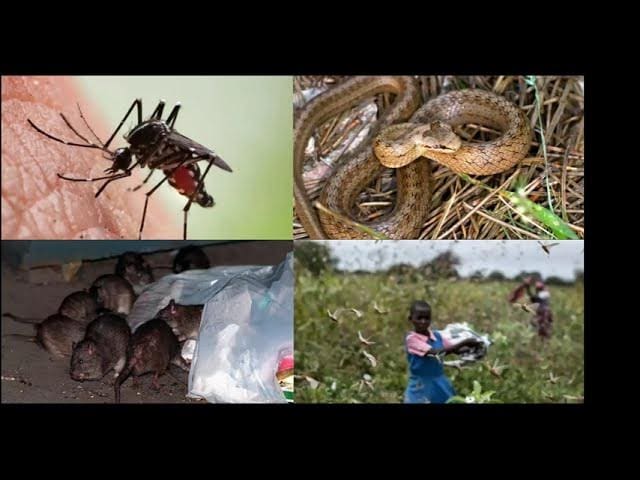
Understanding Pest Control
Pest control is the practice of managing and eliminating unwanted organisms, commonly referred to as pests, in order to protect human health, property, and the environment. The primary purpose of pest control is to minimize the negative impacts that pests can have on our lives. This can include preventing damage to structures, controlling the spread of diseases, and preserving the integrity of ecosystems.
Types of Pests
Pests can be categorized into various groups, including insects, rodents, birds, and other animals. Insects encompass a wide range of species, such as ants, termites, mosquitoes, and cockroaches. Rodents, including rats and mice, are well-known pests due to their ability to cause damage and spread diseases. Birds, such as pigeons or seagulls, can also become pests when they invade urban areas. In addition, other animals like raccoons, squirrels, and bats can cause problems when they enter homes and buildings.
The Role of Pest Control in Society
Pest control plays a crucial role in society by mitigating the impacts of pests on human well-being. Without effective pest control measures, pests can quickly multiply and cause significant damage to crops, structures, and public health. Pest control also plays a major role in preserving the integrity of ecosystems by preventing the spread of invasive species that can disrupt natural habitats and harm indigenous flora and fauna. By managing pests, we can maintain a balance between human activities and the environment.
The Importance of Ethical Considerations
While pest control is undeniably necessary, it is essential to consider the ethical implications of these practices. ethical pest control involves finding a balance between maintaining public health and preserving the environment while minimizing harm to non-target species. It requires taking into account the potential consequences of pest control methods and choosing the most appropriate and least harmful approach.
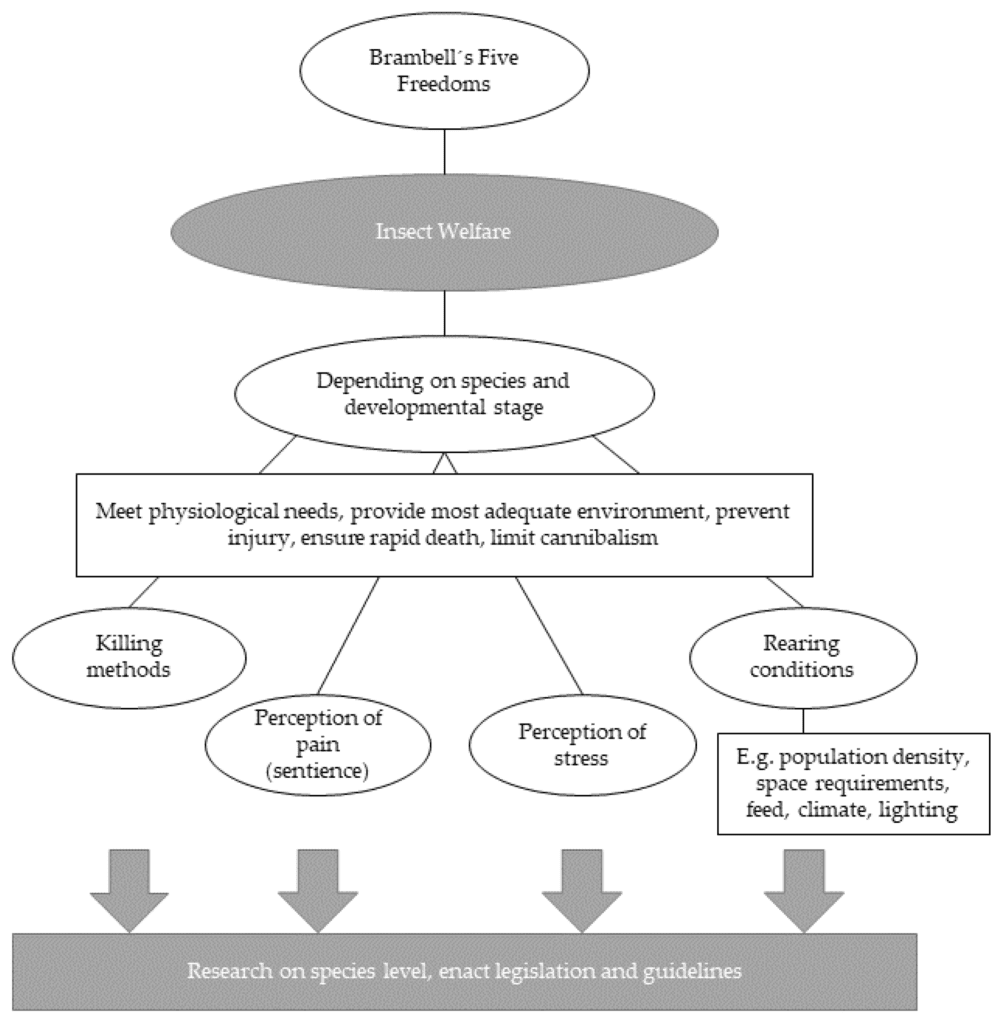
The Impact of Pest Control on the Environment
pest control methods can have a significant impact on the environment. The use of chemical pesticides, for example, can result in the pollution of waterways and harm beneficial insects and animals. In addition, the application of pesticides can lead to the development of pesticide resistance in pests, making them more challenging to control in the long term. It is crucial to consider these environmental impacts when deciding on pest control methods.
The Consequences of Unethical Pest Control Practices
Unethical pest control practices can have far-reaching consequences. For example, the indiscriminate use of pesticides can lead to the decline of pollinators, such as bees, which are essential for the health of ecosystems and agricultural productivity. Additionally, using methods that do not target specific pests can harm beneficial insects and organisms, disrupting the delicate balance of ecosystems. Unethical practices can also lead to unintended consequences, such as the emergence of resistant pests or the displacement of indigenous species.
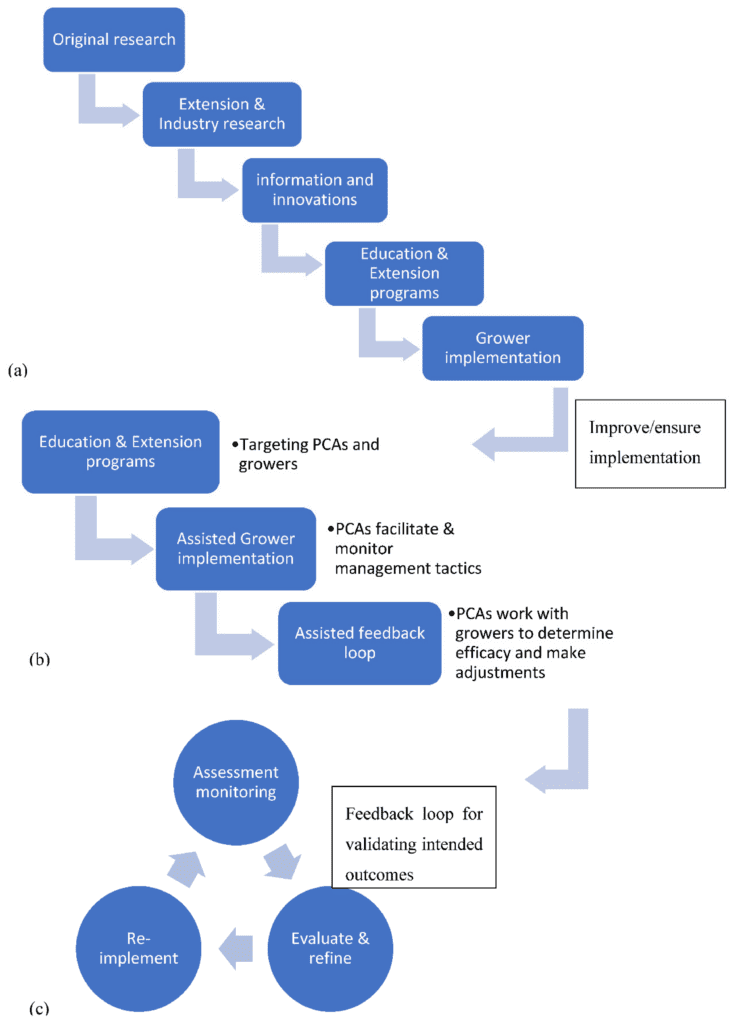
Balancing Public Health and Ecological Preservation
Finding the right balance between public health and ecological preservation is crucial in pest control. While it is important to protect individuals and communities from the spread of diseases carried by pests, it is also necessary to consider the potential harm to the environment. By implementing integrated pest management strategies and focusing on prevention, it is possible to minimize the negative impacts on both public health and the environment.
Ethical Approaches to Pest Control
To address the ethical considerations of pest control, various approaches can be taken to minimize harm and prioritize sustainable practices.
Prevention and Integrated Pest Management (IPM)
Prevention is a fundamental aspect of ethical pest control. By taking proactive measures, such as sealing entry points and implementing proper sanitation practices, the need for more invasive and harmful pest control methods can be greatly reduced. Integrated Pest Management (IPM) is another ethical approach that involves combining multiple pest control strategies to effectively manage pests while minimizing the use of chemicals.
Biological Control Methods
Biological control methods involve using natural predators, parasites, or pathogens to control pest populations. For example, releasing ladybugs to eat aphids or introducing bacteria that target specific pests can be effective and environmentally friendly ways to manage pest populations. By harnessing the power of natural systems, biological control methods can be a sustainable and ethical solution.
Chemical Control with Minimal Environmental Impact
While chemicals should be used as a last resort, when necessary, it’s essential to choose products with minimal environmental impact. This includes selecting pesticides that target specific pests and have low toxicity to non-target species. Additionally, following proper application techniques, such as using the correct dosage and applying at the appropriate time, can help mitigate the potential harm caused by chemicals.
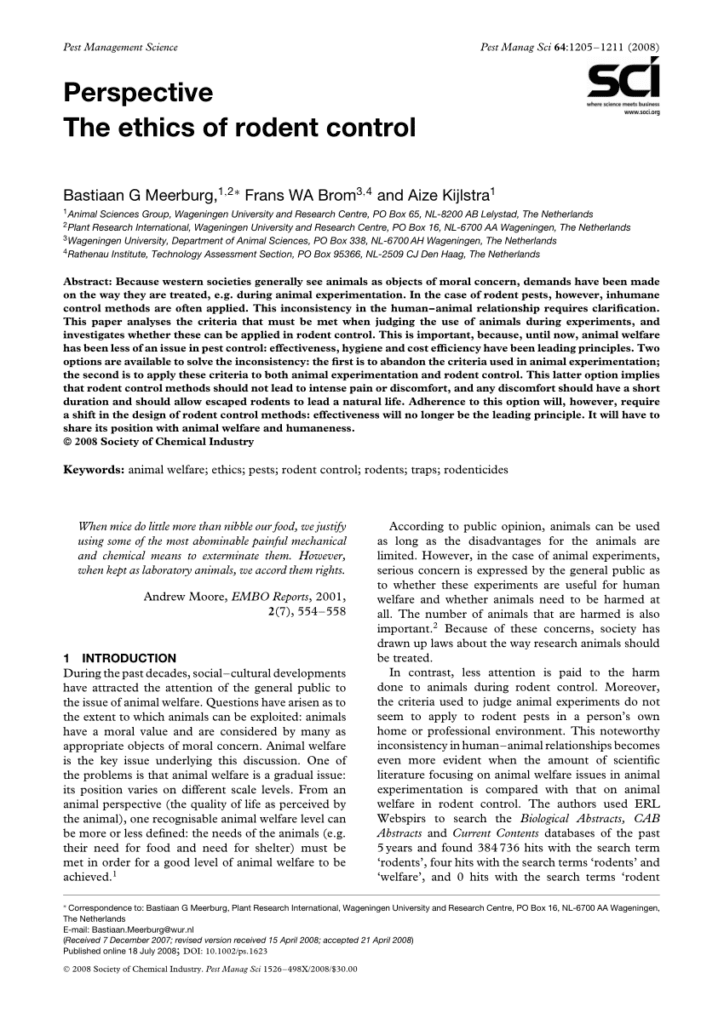
Ethical Dilemmas in Pest Control
Pest control often presents ethical dilemmas that require careful consideration to ensure the most responsible and ethical practices are implemented.
Use of Pesticides and Human Health
One of the ethical dilemmas in pest control is the potential impact of pesticides on human health. While pesticides can effectively control pests, they can also pose health risks to humans if used improperly or excessively. It is crucial to follow safety guidelines, provide proper training to pesticide applicators, and choose products with the least harmful effects on human health.
The Ethics of Killing Animals
Another ethical consideration in pest control is the question of killing animals. While pests can cause damage and pose risks, they are living beings that are part of the natural world. Ethical pest control measures should prioritize non-lethal methods whenever possible. This can include using exclusion techniques, humane traps, or relocation strategies that allow pests to be removed without causing harm or death.
Effects on Non-Target Species
When implementing pest control measures, there is a risk of inadvertently harming non-target species. For example, using broad-spectrum pesticides can have unintended consequences, leading to the death or decline of beneficial insects, birds, or other organisms. To minimize these effects, it is important to choose pest control methods that specifically target the pests causing the problem and avoid practices that harm non-target species.
Displacement of Indigenous Species
Introducing non-native species as a biological control measure can sometimes lead to unintended consequences. In some cases, the introduced species can become pests themselves, causing damage and disrupting ecosystems. Ethical pest control practices should carefully consider the potential risks of introducing nonindigenous species and prioritize the preservation of native biodiversity.
Regulations and Certifications
To ensure that pest control practices meet ethical standards, there are regulations and certifications in place to guide industry professionals.
Government Regulations and Pest Control
Government regulations play a crucial role in ensuring that pest control practices are carried out responsibly. These regulations often dictate the proper handling, storage, and use of pesticides to protect human health and the environment. By following these guidelines, pest control companies can contribute to ethical practices and maintain compliance with legal requirements.
Certifications and Standards for Ethical Pest Control Practices
Certifications provide industry professionals with a way to demonstrate their commitment to ethical pest control practices. Various certifications, such as those offered by integrated pest management associations or industry-specific organizations, establish standards and guidelines that companies can adhere to, ensuring that they are using the most responsible and environmentally friendly practices.
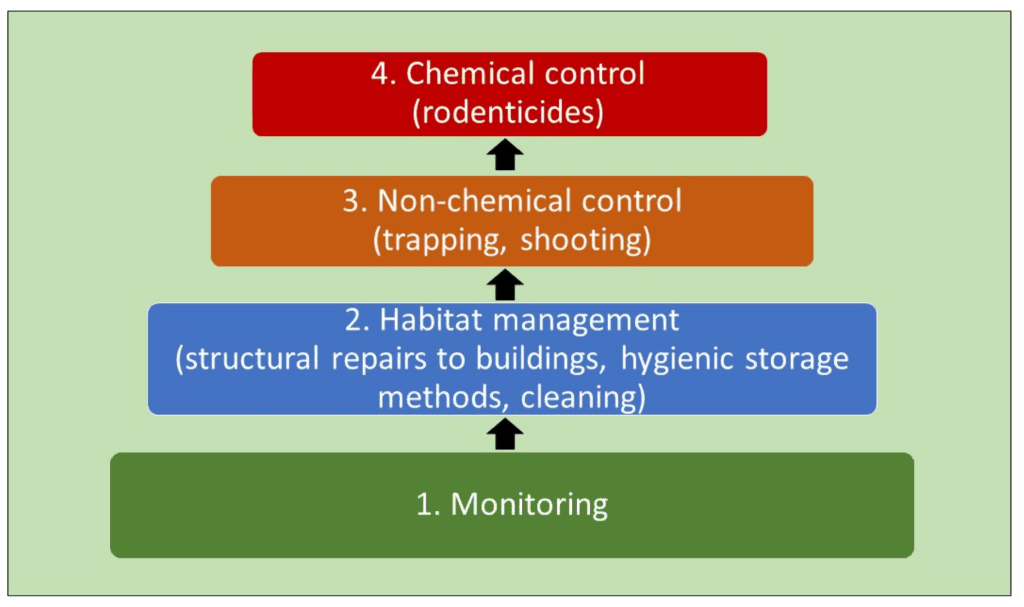
The Role of Education and Awareness
Education and awareness are vital in promoting ethical pest control practices among both professionals and the public.
Educating the Public and Consumers
By educating the public and consumers about the importance of ethical pest control, we can promote responsible practices. This can involve providing information about the potential risks of pesticides, the benefits of prevention and IPM, and the availability of humane alternatives. Increased awareness can help individuals make informed decisions and encourage them to choose pest control companies and products that prioritize ethical considerations.
Transparency in Pest Control Companies
Transparency is essential in fostering trust between pest control companies and consumers. Ethical pest control companies should be transparent about their practices, including the use of chemicals, methods employed, and the potential impacts on the environment. By providing clear and honest information, customers can make informed choices and support companies that align with their values.
Promoting Ethical Pest Control Practices
Through educational campaigns and partnerships with industry organizations and environmental groups, ethical pest control practices can be promoted on a broader scale. This can involve sharing success stories, case studies, and best practices to inspire and encourage others to adopt responsible pest control measures. Collaboration among stakeholders can help create a culture of ethical pest control and contribute to positive change.
Industry Perspectives on Ethics
Within the pest control industry, there are varying opinions and debates regarding ethical considerations.
Debates and Opinions within the Pest Control Industry
The pest control industry is diverse, and professionals may have differing opinions when it comes to ethical practices. Some may prioritize profitability and quick solutions, while others may emphasize sustainable and environmentally friendly methods. Engaging in open discussions and debates can help bridge the gap between different perspectives and lead to the development of more ethical standards and practices.
The Influence of Profitability on Ethical Considerations
As with any industry, profitability can sometimes influence ethical considerations. Pest control companies that prioritize profit above all else may be more likely to use quick-fix solutions or excessive pesticide applications, potentially disregarding the long-term impact on the environment and public health. However, there is an increasing demand for ethical practices, which can drive companies to adopt more responsible approaches.
Case Studies and Examples of Ethical Pest Control Companies
Many pest control companies are taking an ethical approach to their practices. By prioritizing prevention, IPM, and environmentally friendly methods, these companies are proving that pest control can be effective without causing unnecessary harm. Case studies and examples of ethical pest control companies can serve as inspiration and demonstrate that profitability and ethical considerations can go hand in hand.
Ethics and Pest Control Advertising
Advertising plays a significant role in shaping consumer choices and perceptions. In the field of pest control, ethical advertising requires a commitment to transparency and truthfulness.
Avoiding Misleading Claims
Ethical pest control advertising should avoid making misleading claims or exaggerating the effectiveness of products or treatments. It is essential to provide accurate information about the limitations and potential risks associated with different pest control methods. By giving consumers an honest representation of the products and services offered, they can make informed decisions.
Transparency in Affiliate Marketing
Affiliate marketing in the pest control industry should prioritize transparency. When recommending or promoting products as an affiliate, it is crucial to disclose any potential financial incentives or relationships that may exist between the marketer and the product or company being promoted. This transparency allows consumers to make informed choices based on unbiased information.
Promoting Ethical Products and Solutions
Ethical pest control advertising should actively promote products and solutions that prioritize sustainability, environmental responsibility, and safety. By highlighting products and services that have been independently verified or certified as ethical, advertisers can encourage consumer demand for responsible pest control practices.
Consumer Responsibility and Ethical Choices
Consumers play a crucial role in promoting ethical pest control practices by making responsible choices and supporting companies that align with their values.
Researching Companies and Products
When selecting a pest control company or product, consumers should conduct research to ensure that they are choosing ethical options. This can involve reading reviews, checking for industry certifications, and inquiring about the company’s pest control methods. By investing time in research, consumers can make informed decisions and support businesses that prioritize ethical practices.
Supporting Ethical Pest Control Solutions
By consciously choosing to support companies that prioritize ethical pest control practices, consumers can create a demand for responsible solutions. Recognizing and rewarding companies that prioritize sustainability, prevention, and humane treatment can drive positive change within the industry and encourage others to adopt similar practices.
Consumer Demand for Ethical Practices
Consumer demand has the power to drive change in the pest control industry. By expressing a preference for companies that use environmentally friendly and humane pest control methods, consumers can influence the market. As more consumers prioritize ethics in their purchasing decisions, businesses will respond by adopting more responsible practices.
Conclusion
Pest control is a necessary practice that plays a crucial role in protecting human health, property, and the environment. However, it is essential to approach pest control ethically to minimize harm to non-target species, preserve ecosystems, and prioritize public health. By implementing prevention strategies, choosing sustainable control methods, and considering the potential consequences of pest control practices, we can strike a balance between effective pest management and ethical considerations. Through education, awareness, and consumer demand for ethical practices, we can promote responsible pest control and create a more sustainable future.

I am Randy, the author behind PestControld.com. Drawing from decades of experience, I aim to provide valuable insights, expert advice, and practical recommendations to help you make informed decisions when assessing viable pest control solutions.